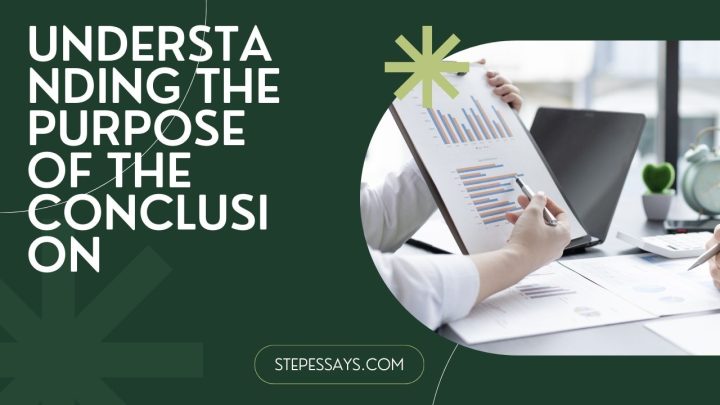Table of Contents
ToggleIntroduction
Writing a cover letter can be likened to the final brushstroke on a masterpiece painting—it’s the last chance to leave a lasting impression on your potential employer. Among the crucial elements of a cover letter, the conclusion often receives less attention than the introduction or body paragraphs. However, a well-crafted conclusion can tie together your skills, experiences, and enthusiasm for the position, leaving a memorable mark on the reader. In this comprehensive guide, we will look into the components of writing an effective conclusion for your cover letter, providing practical tips and examples to help you stand out from the crowd.
Understanding the Purpose of the Conclusion
Before delving into the specifics of crafting a conclusion, it’s essential to understand its purpose within the context of a cover letter. The conclusion serves as the final opportunity to reinforce your interest in the position, summarize your key qualifications, and express gratitude for the reader’s consideration. It should leave a strong and positive impression while inviting further action, such as scheduling an interview. Essentially, the conclusion should encapsulate why you are the ideal candidate and why the employer should proceed with your application.

Conclusion
Key Components of a Strong Conclusion
1. Restate Your Interest and Enthusiasm
Reiterate your excitement about the opportunity and your genuine interest in the company and the position. Use language that conveys your enthusiasm and eagerness to contribute.
Example: “I am genuinely excited about the opportunity to join [Company Name] and contribute to its innovative projects. My passion for [industry/field] drives me to continuously seek new challenges and opportunities for growth.”
2. Summarize Your Qualifications
Briefly recap the key qualifications and experiences highlighted in the body paragraphs. Emphasize how your skills and achievements align with the requirements of the position.
Example: “With a proven track record in [specific skill or area], I am confident in my ability to [address specific challenges or responsibilities mentioned in the job description]. My experience in [relevant experience] has equipped me with the skills necessary to excel in this role.”
3. Express Confidence and Readiness
Convey confidence in your ability to fulfill the responsibilities of the position and make valuable contributions to the company. Use assertive language to demonstrate your readiness to take on the role.
Example: “I am confident that my skills and experiences make me well-suited for this role, and I am eager to hit the ground running and make an immediate impact at [Company Name].”
4. Extend Appreciation and Invite Further Action
Express gratitude for the opportunity to apply and thank the reader for considering your application. Politely invite them to contact you for further discussion or to schedule an interview.
Example: “Thank you for considering my application. I am eager to discuss how my background, skills, and enthusiasm can contribute to the success of [Company Name]. I look forward to the possibility of discussing this exciting opportunity with you further.”
Tips for Writing an Effective Conclusion
1. Keep It Concise:
Avoid lengthy paragraphs in the conclusion. Aim for brevity while ensuring that you cover all essential points effectively.
2. Use Positive Language:
Maintain a positive tone throughout the conclusion. Focus on your strengths and what you can bring to the company.
3. Customize for Each Application:
Tailor your conclusion to align with the specific job and company you are applying to. Highlight relevant experiences and skills that match the requirements of the position.
4. End with a Strong Call to Action:
Encourage the reader to take the next step by expressing your readiness for further discussion or an interview.
Example Cover Letter Conclusion:
Dear Hiring Manager,
Thank you for considering my application for the [Position Title] at [Company Name]. I am thrilled at the prospect of contributing to your team and driving [specific goals or initiatives mentioned in the job description].
Throughout my career, I have honed my skills in [relevant skills or areas], and I am eager to leverage this expertise to [address specific challenges or objectives mentioned in the job description]. My passion for [industry/field] and commitment to excellence make me confident in my ability to make valuable contributions to [Company Name].
I am particularly drawn to [Company Name]’s dedication to [mention specific aspects of the company culture, values, or projects]. I admire the innovative approach you take to [mention specific projects, products, or services], and I am excited about the opportunity to be part of such a dynamic team.
I am confident that my skills, experiences, and enthusiasm make me a strong fit for this role. I am eager to further discuss how my background aligns with the needs of [Company Name] and how I can contribute to its continued success. Please feel free to contact me at [Your Phone Number] or via email at [Your Email Address] to schedule a conversation at your earliest convenience.
Thank you once again for considering my application. I look forward to the possibility of working together and contributing to the growth and success of [Company Name].
Sincerely, [Your Name]
Final Thoughts
Crafting an effective conclusion for your cover letter requires careful consideration of your strengths, the company’s needs, and the desired tone. By following the guidelines outlined in this guide and using the example provided, you can create a conclusion that leaves a positive impression on hiring managers and increases your chances of securing an interview. Remember, the conclusion is your final opportunity to make your case for why you are the ideal candidate—make it count!
Conclusion
In conclusion, the conclusion of your cover letter plays a crucial role in leaving a lasting impression on potential employers. By carefully crafting this final section, you can reinforce your interest in the position, summarize your qualifications, and invite further action. Remember to keep it concise, positive, and tailored to the job and company you’re applying to. With these tips and examples in mind, you can write a compelling conclusion that sets you apart from other candidates and increases your chances of landing your dream job.
